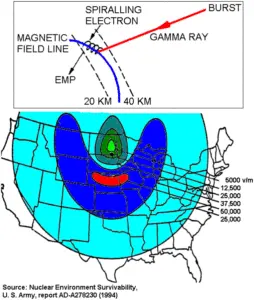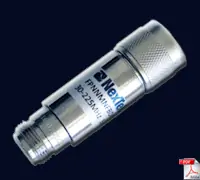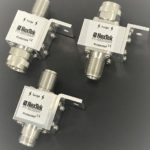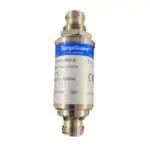News & Events
March 14, 2016
Protecting Radio Equipment from HEMP/NEMP High Speed Transients – Coaxial Arrestor Threat Type Spotlight
This post is about protecting against high speed HEMP/NEMP pulses, one of the many types of transient threat that NexTek arrestors provide protection against. Although Lightning energy is the primary source of damage to coaxial lines and systems where they are used, there are also other types of Surge Energy that can cause damage to electronics.
HEMP/NEMP, or High altitude Electro Magnetic Pulse/Nuclear Electro Magnetic Pulse, discharges are among the most rare types of coaxial transient threats…but also among the most potentially damaging!
Damaging Nature of HEMP/NEMP Threats – The high-speed and extremely high energy nature of HEMP/NEMP transient events means that most modern electronics are left vulnerable to damage or permanent failure. The total energy contained within a nanoseconds long pulse has hundreds of kV or potential and multiple kA of current.
Difficulties in Providing HEMP/NEMP Protection – Providing protection against high-speed transient energy pulses such as those caused by HEMP/NEMP events can be extremely challenging for coaxial RF applications for one important reason; some of the Transient Energy can actually be within the normal pass-band of the radio/system during normal operation. This type of conflict makes it difficult to provide optimal (minimal loss) performance during normal system and radio usage but also maintain adequate high-speed Transient response to provide protection against this type of high-speed threat.
To learn more, discuss your requirements, or receive feedback regarding protection options for your application…Please Contact Us!
How to Determine Protection Level Requirements and Identify the Correct Solution – When examining a specific application and to quantify the EMP threat level so as to inform the selection of appropriate protection, there are two main paths to travel down:
One, the EMP threat may be given by a specific Industry Standard document (MIL-STD, IEC, IEEE, EN, etc) according to a judgement made upstream in the overall program… Second, in the absence of a specific requirement…you can determine an approximate threat level or desired protection level based on the program-level requirements, estimated risk, and even things like the estimated cost of protection.
See below for a table which lists some EMP Requirements which may apply to a given application:
- MIL-STD 188-125-1
- MIL-STD 188-125-2
- MIL-STD 461, multiple subsections
- MIL-STD 464, multiple subsections
- IEC-61000-x-x, multiple subsections
- Or any others that deal with E1, E2, and E3 Pulse Types
- Also Related – IEMI Standards
Learn More:
Threat Type Page – HEMP/NEMP Protection
Coaxial Surge Arrestors – Home Page
Get A Free Quote
Or Call 978-486-0582






